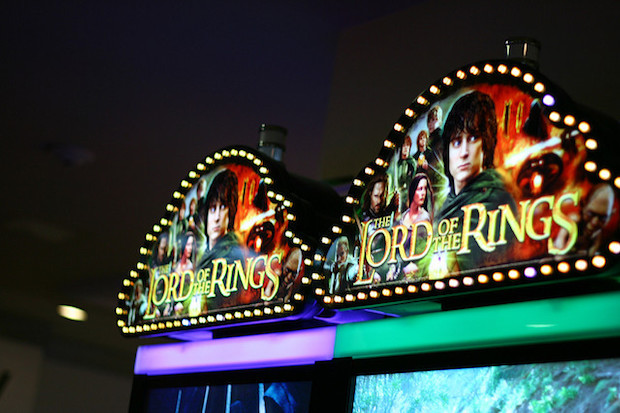
Lord of the Rings slot machines at the Flamingo, image by jenneze (Flickr CC BY-NC 2.0). Unlike gambling played for real money, “social casino games” generally have no monetary prizes.
Social casino gaming, which simulates gambling games on a social platform such as Facebook, is a nascent but rapidly growing industry—social casino game revenues grew 97 percent between 2012 and 2013, with a USD$3.5 billion market size by the end of 2015. Unlike gambling played for real money, social casino games generally have no monetary prizes and are free-to-play, although they may include some optional monetised features. The size of the market and users’ demonstrated interest in gambling-themed activities mean that social casino gamers are an attractive market for many gambling operators, and several large international gambling companies have merged with social casino game operators. Some operators consider the games to be a source of additional revenue in jurisdictions where online gambling is largely illegal, or a way to attract new customers to a land-based gambling venue. Hybrid models are also emerging, with the potential for tangible rewards for playing social casino games. This merging of gaming and gambling means that many previously established boundaries are becoming blurred, and at many points, the two are indistinguishable. However, content analysis of game content and advertising can help researchers, industry, and policymakers better understand how the two entertainment forms overlap. In their Policy & Internet article “Gambling Games on Social Platforms: How Do Advertisements for Social Casino Games Target Young Adults?”, Brett Abarbanel, Sally M. Gainsbury, Daniel King, Nerilee Hing, and Paul H. Delfabbro undertake a content analysis of 115 social casino gaming advertisements captured by young adults during their regular Internet use. They find advertisement imagery typically features images likely to appeal to young adults, with message themes including a glamorising and normalisation of gambling. Notably, nearly 90 percent of the advertisements contained no responsible or problem gambling language, despite the gambling-like content. Gambling advertisements currently face much stricter restrictions on exposure and distribution than do social casino game advertisements: despite the latter containing much gambling-themed content designed to attract consumers.…

